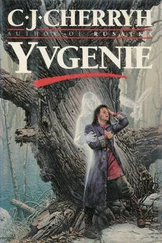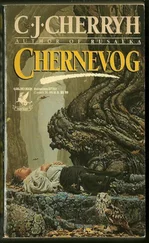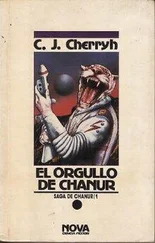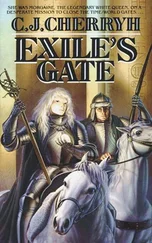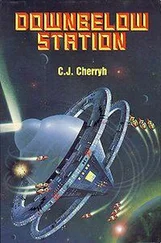C. Cherryh - Kesrith
Здесь есть возможность читать онлайн «C. Cherryh - Kesrith» весь текст электронной книги совершенно бесплатно (целиком полную версию без сокращений). В некоторых случаях можно слушать аудио, скачать через торрент в формате fb2 и присутствует краткое содержание. Жанр: romance_sf, на английском языке. Описание произведения, (предисловие) а так же отзывы посетителей доступны на портале библиотеки ЛибКат.
- Название:Kesrith
- Автор:
- Жанр:
- Год:неизвестен
- ISBN:нет данных
- Рейтинг книги:3 / 5. Голосов: 1
-
Избранное:Добавить в избранное
- Отзывы:
-
Ваша оценка:
- 60
- 1
- 2
- 3
- 4
- 5
Kesrith: краткое содержание, описание и аннотация
Предлагаем к чтению аннотацию, описание, краткое содержание или предисловие (зависит от того, что написал сам автор книги «Kesrith»). Если вы не нашли необходимую информацию о книге — напишите в комментариях, мы постараемся отыскать её.
All Rights Reserved
Cover art by Gino D'Achille
Frontispiece sketch by the Author
For DON WOLLHEIM with most especial appreciation
FIRST DAW PRINTING, AUGUST 1978 123456789
PRINTED IN U. S. A.
Kesrith — читать онлайн бесплатно полную книгу (весь текст) целиком
Ниже представлен текст книги, разбитый по страницам. Система сохранения места последней прочитанной страницы, позволяет с удобством читать онлайн бесплатно книгу «Kesrith», без необходимости каждый раз заново искать на чём Вы остановились. Поставьте закладку, и сможете в любой момент перейти на страницу, на которой закончили чтение.
Интервал:
Закладка:
"In the case that you do not watch where you walk," Niun said in a harsh tone, "the burrower that gets you will not have our shelter and our food."
The human looked at him, marked across the brow by a bloody stripe of his encounter with the windflower; and Niun did not think that the human would have forgotten his words of the day previous, that he would carry no burden. He glowered at Duncan, discouraging any reminder of this.
"I learn quickly," Duncan said, and Niun reckoned that among the things Duncan had learned was the art of answering a kel'en civilly.
Chapter TWENTY
THE AIR was unimaginably foul, tainted by so many frightened regul. It was dark, save for the lights on the two sled consoles and the four life-battery lamps the shelter provided. Power elsewhere was out. The water plants were down. There was talk of seeking water Kesrithi style, from the land, but none of the younglings were sure that they could accomplish this; and they were not anxious to go out into the contaminated exterior, or across the seething flats.
Hulagh had not yet ordered them. He would do so, Stavros did not doubt, when he himself began to thirst.
The sleds were on battery. To this also there was a limit; but Stavros and Hulagh, elders, consumed vital power as they consumed food and water unrationed, because it was unquestioned that elders must be supported by the young. Stavros found it in him to pity the harried secretary, Hada, who dispensed food and water that remained to 300 other younglings, and likewise ministered to Hulagh and himself. They were jammed into the shelter so tightly that the youngest and least could not lie down to sleep; but the sleds were accorded their maneuvering room. The younglings gave back from them with deference that was next to worship; indeed their whole hope for survival centered on the presence of elders among them. They talked little. They all faced Hulagh, row on row of bone-shielded faces and blunt heads, and eyes glittered in the almost-dark and nostril-slits worked in a slow rhythm that seemed to Stavros, in a moment of bizarre humor, to be tending toward unison.
And in the long hours he noted something else, that there were not a few who fell asleep and did not waken.
Bai, favor, he signalled, spelling slowly in regul symbols on the screen. I think some of the younglings are ill.
Hulagh's great body heaved as he looked, and heaved again with a hiss of mirth. "No, reverence-human, they are asleep. They are to sleep until your assistance comes. They consume less in that state."
And in increasing numbers the young, beginning with the youngest, slipped into that state, until almost all were dormant.
And bai Hulagh himself began to drowse. He recovered from this with a jerk and a rumbled curse, and called to Hada. "Food," he ordered. "Be quick, witless."
The thick, sour-smelling soup was offered likewise to Stavros, but he declined it, almost retching. This troubled Hada, but it gave the portion to Hulagh, between whose thin lips the paste disappeared rapidly.
"You do not eat," Hulagh observed.
I do not need to eat, Stavros replied, and in honesty: Your food does not agree with me. But I would have soi.
Hada scrambled to accommodate this wish, feverish, almost maniac in its desire to please. It offered the hot liquid to Stavros' good hand, with a straw for his ease, and hovered near him.
Hulagh laughed, a rumbling, a series of hisses. "Go, egg-stealer, and sit with the other younglings." And Hada visibly cringed, and slunk aside, on small tottering steps.
"Hada knows," Hulagh explained, waxed almost affable under the pressure of their long wait, under the need to be pleasant with humans and human ways, "that if we are here much longer, there will be shorter rations; and Hada is greedy. I indulge this youngling. I shall keep it if it continues to please. I may keep all. I have lost," he added sadly, "my own."
With the ship, Stavros understood. My sorrow, reverence.
"And mine for the loss of your own youngling." The great gossamer-clad monster sighed and lapsed into a long reverie.
And Stavros, his sled nose-to-nose with that of Hulagh, hurled his temper at the weak fingers of his left hand. They gave only slightly. The right hand clenched. He had ceased to fear that the paralysis would spread or that it would affect his mind, but he was ceasing to hope that it would ever ease completely. He remained grateful for regul technology, if not for regul.
Hulagh's condolences were honest, doubtless, but it did not mean that the regul's hands were clean in the matter. Stavros regarded the drowsing regul with narrowed eyes. Now, shut in a shelter with the regul, was an inopportune moment to state the obvious, that Hulagh had had somewhat to do with the disappearance of Duncan, and that Stavros, conversely, was innocent in the loss of the bai's ship and the younglings aboard it.
In regul morality, disposing of a youngling was a serious matter, but only in terms of the affront offered its elder and its doch. A regul would as soon face an elder's wrath over the loss of a youngling as that same elder's wrath over some matter of shady dealing discovered in trade; and Stavros reckoned that the same ruthless logic just might apply to eliminating a lone elder whose doch could prove hostile, given the information which that elder possessed.
Regul did not lie, he still believed, but they were fully capable of murder, whereby lies could be rendered unnecessary. And they feared him on the one hand and hoped for his help on the other, and he fostered that hope in them as he cherished his own life.
He began to reckon the mind of bai Hulagh of doch Alagn, that here was a desperate fellow, who had suffered a very dangerous loss in the eyes of his kind. And therefore, while it seemed profitable, Hulagh, like a good merchant prince, was dealing for compromise.
It was a compromise out of which humankind could win a great deal.
But part of that settlement, Stavros was determined, would be an accounting for a certain lost SurTac, on whom Stavros had settled rather more affection than he had admitted to himself. He had not loved his own children, of whom he had seen little, locked as be was in the reclusive life of a scholar of Kiluwa, or later, while he was busy in government and at the university. He had found many other things more important than to trouble himself with the issue of several of his young passions, that had given him first an assortment of sons and thereafter grandchildren and great-grandchildren—who sought him out mostly because a Kiluwan connection was prestigious. Some of them, he knew, hated him with the same dedicated zeal with which they sought promotions based on his influence.
But he missed Duncan. Duncan had come, like others who had ridden Stavros' reputation to reach for wealth, with the motives of the others; and yet Duncan had given him a constant and earnest duty, earnest in his attempts to penetrate Kiluwan formality, simply because it was Duncan's nature to do so.
Stavros had never learned how to answer that. Nor, for the regul, did he admit to grief which they would not have understood. But in addition to an accounting which the regul owed for Kiluwa, there was that for an inconsequential SurTac.
He did not, all the same, regret having sent Duncan, even at such cost. Events had damaged the regul and exacted satisfaction of them, and placed them at human mercy; and this was very much to Stavros' satisfaction. This was partial payment for Kiluwa.
It would be full payment, when he seized the reins of control from bai Hulagh, and began to bend doch Alagn into agreement with humans. This was revenge of a sort that both Hulagh and Kiluwa could appreciate—the more so when he ascertained who among regul was directly responsible for Kiluwa and found the means to deal with them. Being Kiluwan, Stavros entertained a hatred specific and logical: there was a species called regul; but the species called regul had not destroyed Kiluwa. It was one doch; and its name was Holn, and it was not represented here.
Читать дальшеИнтервал:
Закладка:
Похожие книги на «Kesrith»
Представляем Вашему вниманию похожие книги на «Kesrith» списком для выбора. Мы отобрали схожую по названию и смыслу литературу в надежде предоставить читателям больше вариантов отыскать новые, интересные, ещё непрочитанные произведения.
Обсуждение, отзывы о книге «Kesrith» и просто собственные мнения читателей. Оставьте ваши комментарии, напишите, что Вы думаете о произведении, его смысле или главных героях. Укажите что конкретно понравилось, а что нет, и почему Вы так считаете.


